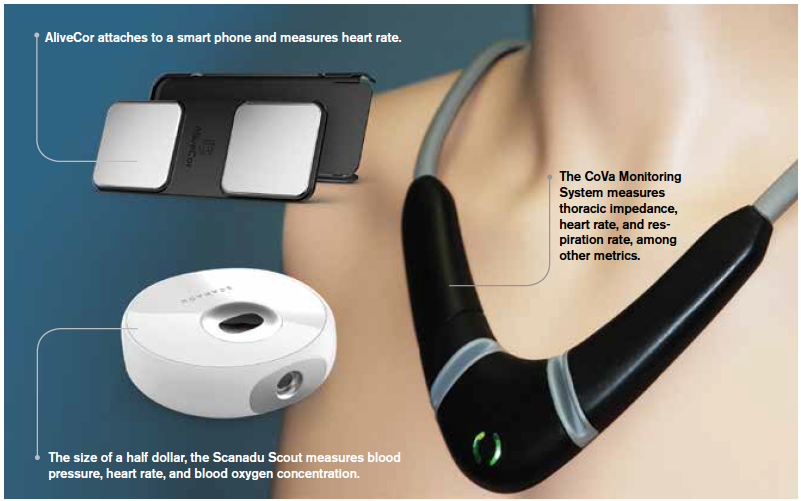Dr. Kevin Klauer: I’m very excited and interested to talk to you because of your background in innovation with technology as well as your formal training in cardiology and your recent thoughts on combining those two disciplines to try to make care delivery more efficient.
Dr. Eric Topol: I think what’s really exciting is that there is emerging technology that is truly transformative, that puts the consumer, the patient, in a very unique position of actually generating a lot of data and then having algorithms, cloud computing, even machine learning to help provide that data back to the individual. In many ways, it’s the decompressed diagnostic monitoring aspect of doctoring.
KK: I saw a recent interview you did for CBS on January 6th, and it was great, as you were able to bring some gadgets with you. One I think I’ve seen before is AliveCor, with the two-finger rhythm strip. One of the devices looked like a Star Trek necklace, [the CoVa Monitoring System]. I felt really bad for you because it looked like it wasn’t working right.
ET: The device was working really well, but the prop guy for CBS played with it when they took it from me, and by the time I got on live TV, it was all screwed up. I couldn’t get it back quickly. That necklace is a really good example because you can get cardiac output stroke volume with every heartbeat and thoracic fluid, so for somebody with heart failure—or let’s say if you’re an emergency room physician—instead of having to put a Swan-Ganz in, which you’re not likely to do in the emergency room, you could actually get these kind of hemodynamics quickly.
KK: This technology is fascinating, but have these devices stood up to scientific rigor and external validation?
ET: That testing is happening right now, but I’m familiar with data from hundreds of patients, many of them in intensive care units with heart failure, where they’ve had the data side by side with our conventional way of testing it. It looks promising, but we always need more validation before we go into wide-scale use. The other [technology] that is exciting is a watch that reads your blood pressure with every heartbeat. With 70 million Americans who have hypertension, the ability to get vital signs like blood pressure in the real world for each individual contextualized with their life is really a phenomenal step forward, and that looks promising with respect to accuracy.
Pages: 1 2 3 4 | Single Page






No Responses to “Is Technology Putting Health in the Hands of Patients or Taking It Out of the Hands of Physicians?: An Interview with Dr. Eric Topol”